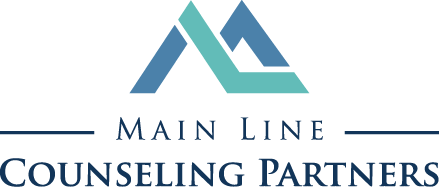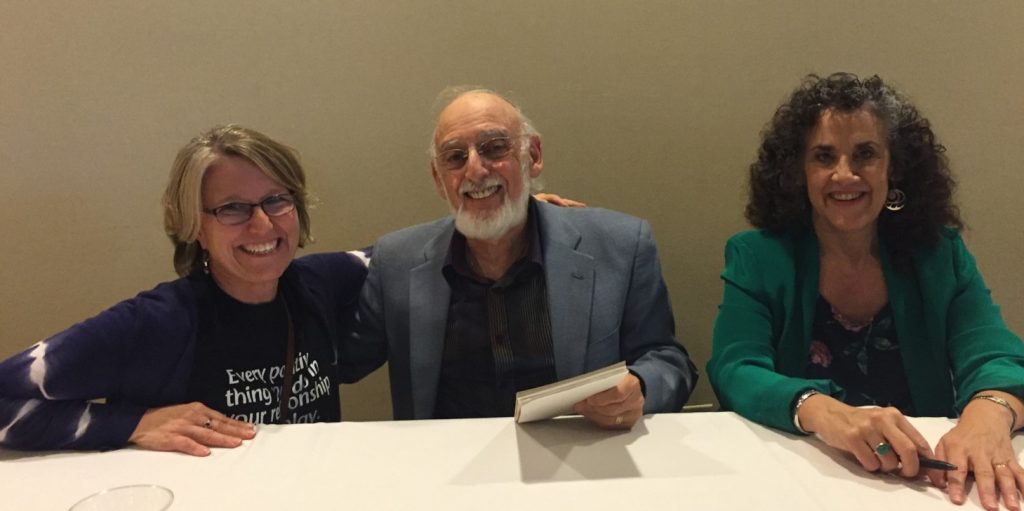The other day, someone said, “You’re a Gottman Therapist, right?”
The short answer is “Yes.” the long answer is “Yes, and …” Here’s my story.
I had the privilege to train with John and Julie Gottman in their prime years. I first saw John speak in 2007 and I was inspired by his warm demeanor, humility, and staunch commitment to the integrity of the scientific method (sometimes lacking in the field of mental health).
A few years later, I was invited to the Gottmans’ home on Orcas Island to help set up a random clinical trial testing infidelity protocols. I thought I was going there to further my training by my favorite gurus. I was doe-eyed and star-struck. But that is when I came to understand why John and Julie had become so successful. It turns out that our small group of researchers and clinicians were not assembled as students, we were there because they wanted to learn from us. It didn’t take long for all of us to dive in and share thoughts, ideas and insights based on what we were seeing in our individual offices so that we could set up an informed research model.
My main takeaway from that week together was that the best kind of wisdom isn’t a linear thing passed down from top to bottom, it is more of a chaotic process as neurons fire, ideas are shared, and minds are willing to expand. In other writing, I’ve called it intellectual vulnerability.
No one working in the field of relationship health should ever work alone. The more we learn from others, the better. The more we challenge ideas, test them, and find new hypotheses the better. The more we listen, the better.
One day, many years later, Julie literally told me it was now our turn to take the torch. She said it’s the job of the next generation of clinicians and researchers to go in new directions and see what the old people before us got wrong so we can keep making it better. I didn’t say it out loud, but I’m thinking to myself,
“Yeah, okay, I guess I’ve got you fooled pretty well, cuz I’m just trying to put on clean socks every morning. But I’ll try my best.”
So all of this is to say that by definition, being a Gottman Therapist is the same thing as being a generalist. It requires learning from our couples, our parents, our kids, cutting-edge thought leaders, and other experts in and out of the field (I’ve come to learn most experts aren’t famous).So I decided to start a list to begin to give proper attribution to the extraordinary people who inspire and influence me in big and small ways every day.Here is my first draft:
- You – For reading my blog
- Every single client I’ve ever met with – For trusting me
- My Dad, Rev. Richard H. Taber – For showing me the power of love
- Dr. Sue Johnson – For her attachment work
- Dr. Emily Nagowski – For her human sexuality work
- Dr. Yvonne Agazarian – For her systems work
- Dr. Sheldon Solomon – For inspiring the young 18 year old me to think outside the box
- Meg Tacardin – For helping me see that social work was my calling
- Dr. Brene Brown – For her work on empathy
- Dr. Richard Schwartz – For his work on Internal Family Systems
- Jon Kabat-Zinn – For his work on mindfulness (not sure where I would be without his mountain meditation)
- Dr. Savidore Minuchin – For his family therapy work (yes, back then it was a new idea to have clients talk to each other instead of the therapist)
- Dr. Paul Ekman – For his work on emotion
- Dr. Michael Silverstein – For practicing love with me every single day (especially the days we do it all wrong and stay there anyway)
- JoJo and Nicky Silverstein – For being my whole world
I know this is just a short list, but it’s a start. Thank you for being part of my journey to be better!

